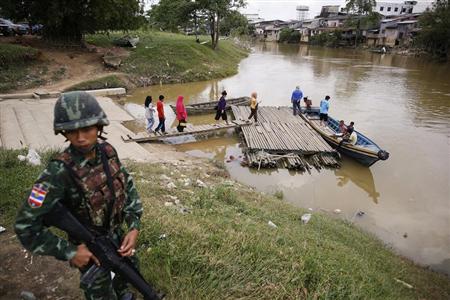
Resistance to Bangkok's Buddhist rule has existed for decades but flared up violently in 2004 since when a campaign of bombings and roadside shootings has killed over 5,300 people, according to monitoring group Deep South Watch.
Thai security forces say the Barisan Revolusi Nasional (BRN)is the main insurgent group behind the attacks, although they acknowledge that other armed groups operate in the region.
The government made no comment on the BRN's message - aired on social networking website YouTube on Sunday - but officials, who dismiss any notion of independence or regional autonomy, are certain to reject the demands.
In the clip, Hassan Taib, one of the BRN leaders, said running "our own government in the fairest way" in the region was one of the group's objectives.
Another leader, Abdulkarim Khalib, demanded that Thailand drop all charges against alleged Muslim separatists and unconditionally release all detainees. The BRN statement pledged to continue its actions "until the demise of colonialism".
Army chief Prayuth Chan-ocha said the clip left unchanged the Thai government's stand that the rebels had broken the law.
"The insurgents are all Thai people and we won't accept them as anything else," told reporters in Bangkok. "They are Thais who broke the nation's law and are answerable to that."
The southern provinces of Pattani, Yala and Narathiwat were once part of an independent Malay Muslim sultanate until annexed by predominantly Buddhist Thailand in 1909. About 80 percent of residents are Malay-speaking Muslims, while most of Thailand is populated by Thai-speaking Buddhists.
Thailand is the world's No. 1 rubber producer and most of it is grown in the south. Insurgents have targeted plantation workers in the past but the impact on trade has been limited.-The Star (April 29, 2013)

No comments:
Post a Comment